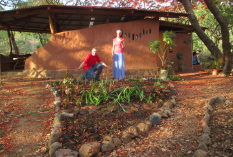Participating in an international volunteer program or internship can be an exciting and rewarding experience. It offers the chance to make a difference, gain valuable skills and knowledge, and explore a new culture. However, working in a cross-cultural environment also presents unique challenges and opportunities that must be navigated with respect and sensitivity. In this article, we’ll explore these challenges and offer tips on how to make the most of the opportunities presented by working in a diverse setting.
Challenge 1: Language Barriers
One of the most common challenges that international volunteers and interns face is communicating with people who speak a different language. In some cases, volunteers and interns may have to learn a new language to effectively communicate with the local community. Even when a common language is used, there may still be difficulties in understanding cultural references, idioms, and slang.
Opportunity: Language Learning
The good news is that learning a new language can be a fun and rewarding experience. It can help build relationships with locals, increase cultural understanding, and make day-to-day life easier. Consider taking language classes before you go, or finding a language exchange program in your host country. This can be an excellent opportunity to meet new people and practice your language skills.
Challenge 2: Different Cultural Norms and Customs
Different cultures have different norms and customs, and what is acceptable in one culture may not be in another. For example, in some cultures, it’s common to greet someone with a kiss on the cheek, while in others, a handshake is more appropriate. There may also be differences in dress, food, and social etiquette.
Opportunity: Learning and Adapting
The key to navigating cultural differences is to be open-minded and willing to learn. Take the time to observe and learn about the local culture before you go, and be respectful of the customs and norms. Be willing to adapt your behavior and expectations, and be patient with yourself and others.
Challenge 3: Power Dynamics and Privilege
International volunteering and internship programs can sometimes perpetuate power imbalances and privilege. Volunteers and interns may be seen as outsiders with access to resources and opportunities that locals don’t have. This can lead to tensions and resentment.
Opportunity: Collaborating and Empowering
To overcome these challenges, it’s important to approach international volunteering and internships as collaborative efforts. Work with local partners and communities to identify their needs and priorities, and empower them to take an active role in the project. Recognize your own privilege and work to dismantle power imbalances by sharing knowledge, resources, and opportunities.
Challenge 4: Emotional and Psychological Demands
Working in a new and challenging environment can be emotionally and psychologically demanding. Volunteers and interns may experience culture shock, homesickness, and feelings of isolation.
Opportunity: Self-Care and Support
To manage these challenges, it’s important to prioritize self-care and seek support when needed. This may include maintaining a healthy diet and exercise routine, staying connected with friends and family back home, and seeking out local support networks. Many international volunteer and internship programs also offer support and counseling services.
Conclusion
International volunteer programs and internships offer a unique opportunity to gain valuable skills and knowledge, make a positive impact on the world, and experience new cultures. However, they also present unique challenges that must be navigated with respect and sensitivity. By approaching international volunteering and internships with an open mind, a willingness to learn, and a commitment to collaboration and empowerment, you can make the most of this exciting and rewarding experience.











